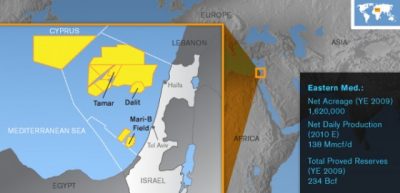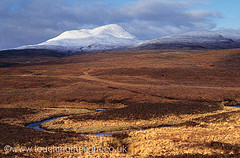 Far be it for this Green Prophet to disavow her love of the city of Tel Aviv. Tel Aviv has almost everything – the beach, museums, great food, interesting architecture, a happening nightlife… But also, of course, traffic congestion, waste, pollution, an overdose of concrete, and the improper collection of rainwater, to name a few. Tel Aviv – or any city – can be a lot to take and many urbanites find themselves searching for greener pastures eventually.
Far be it for this Green Prophet to disavow her love of the city of Tel Aviv. Tel Aviv has almost everything – the beach, museums, great food, interesting architecture, a happening nightlife… But also, of course, traffic congestion, waste, pollution, an overdose of concrete, and the improper collection of rainwater, to name a few. Tel Aviv – or any city – can be a lot to take and many urbanites find themselves searching for greener pastures eventually.
In Israel, these greener pastures will soon come in the form of an intentionally eco-friendly town in the northern Israeli region of Gilboa called Nurit. And lots of Israeli urbanites (mostly from Tel Aviv, Jerusalem, and Haifa) are getting on board.
Currently in the works with the first 100 homes ready by next year (and 400 families living in Nurit by 2012), this new green town is the product of intense consultation with global environmental experts. Nurit will not only encourage, but actively enforce environmentally responsible behavior via its infrastructure and services. And here’s how:
Wind and solar energy: Since Nurit will be located on Mt. Gilboa itself, it will lend itself to collecting a great deal of wind and solar energy. Photovoltaic solar panels and dozens of wind turbines will be installed and will provide more than enough energy for all of Nurit’s public buildings. The excess energy will be sold to the Israel Electric Company, which means that private residents will be able to save money on their own electric bills while making some cash on the side.
Natural air conditioning: Residents will be asked to reduce the need for electric cooling and heating systems by growing tall, leafy trees around their homes (to provide shade during the summer) as well as effectively insulate their homes.
Water conservation: Nurit residents will be required to save water in a few ways. Not only will residents have to build their own rain collection systems and mini-reservoirs to store rainwater, but they will also be required to save “gray water” from dishwashing, bathing, and other non-sewage sources by building separate drainage systems in their homes. The “gray water” will then be used to water gardens and other purposes.
Transporation: Nurit will allow residents to keep their personal vehicles, but will encourage them to use local transportation services. It will also be expected that most residents work in the area or at home, so that long daily work commutes are unnecessary.
:: Israel21c
Read more about other environmental endeavers in northern Israel:: Israel’s First Wind Energy Developer Mey Eden (Eden Springs), Gets Windier on the Golan, Ras Al-Ayn: A Model for Composting in Israel!, Israeli Eco Tourism Welcomes the Yurt, and Green Prophet Visits Amirim, a Vegetarian Paradise in the Galilee




Check out this article in Haaretz by Daniel Orenstein. Even though it’s from 2007 and focused on the Negev, it details the objections listed in my previous comment
http://www.haaretz.com/hasen/spages/841397.html
echoed by Michael’s greenprophet post
http://greenprophet.com/2008/06/02/566/forbidden-fruit-eden-hills/
who also quoted the government’s own ‘Israel 2020′ plan:
“Its underlying planning principles include: concentrated and dense development, urban renewal, prevention of new settlements and increased density of existing ones, improved public transportation, and emphasis on green buffers, open spaces and the preservation of heritage and nature values.”
Development in Israel, as defined by the planning committees and the environmental groups in Israel, should expand existing towns and not build new ones. The environmental impact of establishing a new yishuv, especially in sensitive areas like the Gilboa, is huge: roads, electricity, pipes, sewage, transportation, waste removal, and more have a great cost in the reduction of open spaces, energy and other resources.
It isn’t simple to compare the environmental damage of creating a new town with the benefits from the solar and wind power, grey water, etc. – but it’s hard to see how a new town can be called “Eco-Conscious” when it is not an expansion of an existing place.
I’d also be willing to bet that Nurit will largely be a bedroom community and residents will commute rather than work locally – no word on the employment that will be developed on site to provide local work for the residents
This is interesting.
I love a lot of the ideas here but I take issue with the fact that residents will be “required” to do certain things as opposed to “encouraged” and that they assume that of course one can work from home or in the local area, ( for high-tech, etc. types only?), not all of us have the type of job that can be performed from home or in a small village. Good ideas but a bit on the “eco-facisct” side, being green because you’re required to do so, as well as falling into the common trap of a few people creating an “exclusive” community away from the rest of the society as opposed to working to change existing communities.
Also why the need to create a whole new settlement in an unspoiled area anyway? Why not just try to implement these ideas in established towns and cities?
The time, money and energy required for this project would be better spent in helping to reduce the environmental impact of already existing towns and cities in Israel and educating others.